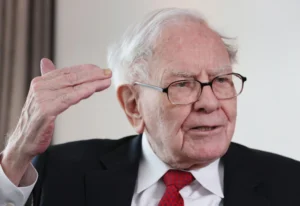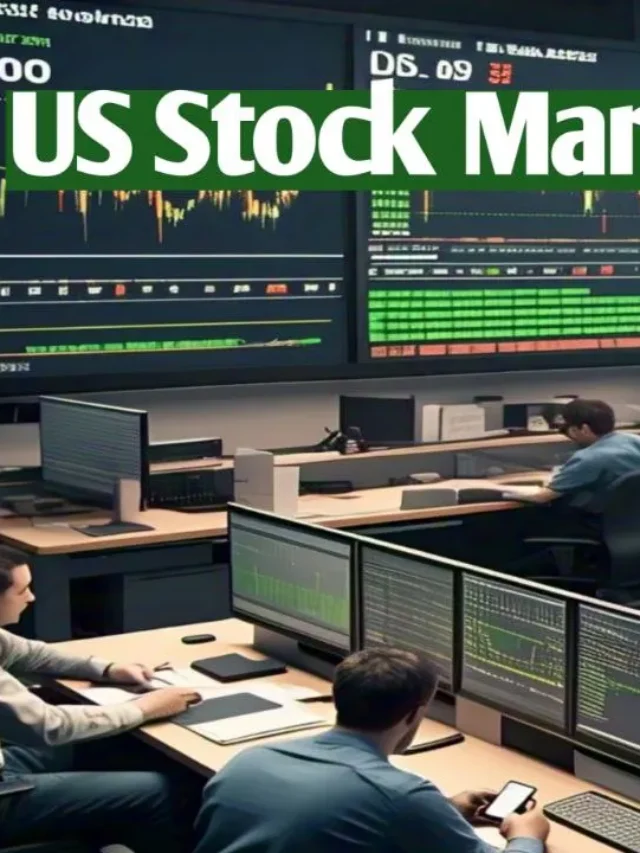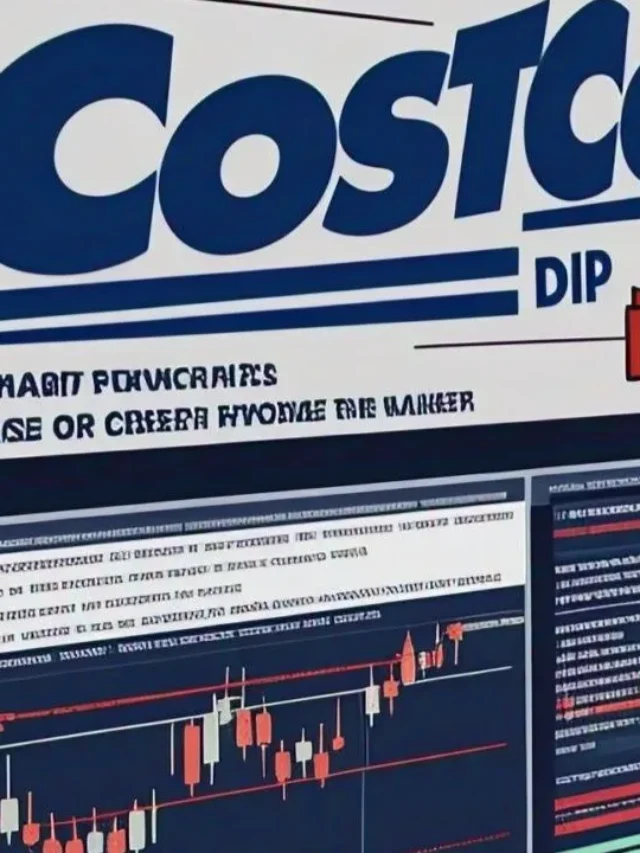
Warren Buffett Sounds the Alarm: Why He Calls Tariffs an ‘Act of War’ & What It Means for Stocks
Buffett’s Bold Warning: Are Tariffs Pushing the Stock Market Toward Uncertainty? An Act of War’ Buffett’s Stark Tariff Warning & Its Impact on Wall Street
The financial world is in shock after Warren Buffett, one of the most respected investors of all time, issued a dire warning about tariffs, calling them an ‘act of war.’ But what exactly does Buffett mean, and how could these tariffs impact the stock market, global trade, and your investments?
Let’s break it all down, including Buffett’s perspective, the economic ripple effects, and what investors should be doing right now.
Buffett’s Bold Statement: Why He Sees Tariffs as Economic Warfare
Warren Buffett has been a vocal critic of protectionist policies, and his latest comments reinforce his stance that tariffs can be damaging to global markets.
In a recent interview, Buffett stated:
“Tariffs are essentially an act of war in the economic sense. They disrupt the natural flow of trade, create inefficiencies, and ultimately hurt businesses and consumers alike.”
Buffett’s use of the phrase “act of war” is alarming, suggesting that tariffs can trigger severe economic retaliation from other nations, leading to trade wars, market instability, and potential recessions.
But why is Buffett so concerned? Let’s look at the bigger picture.
How Do Tariffs Affect the Stock Market?
Tariffs are essentially taxes on imported goods, and while they may seem like a tool to protect domestic industries, they often have negative consequences for businesses, consumers, and investors. Here’s how:
1️⃣ Higher Costs for Businesses: When tariffs are imposed on raw materials or imported goods, companies must pay more to produce their products. This eats into profits and can force businesses to raise prices or cut costs (including layoffs).
2️⃣ Increased Prices for Consumers: Tariffs lead to higher prices for everyday goods, from electronics to automobiles to groceries. Inflationary pressure can reduce consumer spending, which hurts retailers, manufacturers, and service providers.
3️⃣ Stock Market Volatility: Whenever a major tariff is announced, markets react sharply. Investors fear supply chain disruptions, reduced corporate earnings, and global trade tensions, leading to market sell-offs.
4️⃣ Trade War Domino Effect: Countries hit with tariffs often retaliate by imposing their own trade barriers. This back-and-forth damages international relations and can shrink the global economy.

Warren Buffett Sounds the Alarm: Why He Calls Tariffs an ‘Act of War’
Buffett’s Past Warnings on Trade Wars
This isn’t the first time Warren Buffett has warned about the dangers of tariffs and trade wars.
🔹 During the U.S.-China trade war in 2018-2019, Buffett highlighted how escalating tariffs negatively impacted American farmers, tech companies, and manufacturers.
🔹 He also stated that “no one truly wins a trade war,” explaining that both countries suffer due to reduced economic activity and market uncertainty.
🔹 Buffett has long emphasized the importance of free trade, arguing that protectionism stifles innovation and competition.
Given his track record of accurately predicting financial trends, investors should take his latest warning seriously.
What Sectors Are Most Affected by Tariffs?
Not all industries react to tariffs in the same way. Here are some of the hardest-hit sectors:
📉 1. Technology & Electronics
Many U.S. tech companies rely on global supply chains. Higher tariffs on components sourced from Asia (such as microchips, semiconductors, and batteries) can increase production costs and slow down innovation.
Example: Apple faced higher costs on iPhones, iPads, and MacBooks when tariffs were imposed on Chinese imports.
🚗 2. Automotive Industry
Car manufacturers source materials worldwide, so tariffs on steel, aluminum, and auto parts increase production costs, leading to higher vehicle prices and reduced demand.
Example: Ford and General Motors both warned of multi-billion-dollar losses due to past tariff policies.
🌾 3. Agriculture & Farming
Farmers are heavily dependent on exports, and retaliatory tariffs often hit U.S. agricultural goods such as soybeans, corn, and beef.
Example: China’s tariffs on American soybeans caused massive financial losses for U.S. farmers.
🏭 4. Manufacturing & Industrials
Companies that rely on raw materials like steel, aluminum, and plastics face rising costs, which can hurt margins and competitiveness.
Example: Boeing and Caterpillar have previously seen profit declines due to increased material costs from tariffs.
What Should Investors Do? Buffett’s Advice for Navigating a Tariff-Driven Market
If tariffs continue to shake the markets, what can investors do? Here’s Buffett’s investment philosophy, which has proven successful over decades:
✅ Stay Invested in Strong Companies
Buffett always advises investors to own shares in businesses with solid fundamentals rather than panic-selling during market downturns.
“The stock market is designed to transfer money from the Active to the Patient.” – Warren Buffett
✅ Focus on U.S.-Based Companies with Less Global Exposure
While Buffett supports free trade, he also believes in investing in companies that generate revenue domestically to reduce risk from trade wars.
Examples: Utility companies, consumer staples (like Procter & Gamble), and health care firms tend to be less affected by tariffs.
✅ Keep Cash Reserves for Market Opportunities
Buffett famously keeps billions in cash for buying opportunities when stocks become undervalued. Investors should do the same.
✅ Avoid Panic Selling & Think Long-Term
Short-term market volatility is inevitable, but staying the course and holding quality stocks usually results in stronger gains over time.
Also Read: Trump Trade War Alert: Trump’s 25% Tariffs on Mexican & Canadian Imports Kick Off Tuesday
Final Thoughts: Will Buffett’s Warning Become Reality?
Warren Buffett’s statement that tariffs are an ‘act of war’ isn’t just a dramatic phrase—it’s a serious cautionary message about the risks of economic conflict.
With the potential for trade wars, rising costs, and stock market volatility, investors must stay informed and prepared. While tariffs may be a political tool, they can deeply impact financial markets and personal investments.
What You Can Do Now:
✅ Stay diversified across sectors and global markets
✅ Focus on strong companies that withstand economic cycles
✅ Avoid emotional trading and stick to long-term strategies
✅ Keep an eye on Buffett’s next moves—his market insights are legendary
As the situation unfolds, one thing is certain—when Warren Buffett sounds the alarm, smart investors listen. 🚀
To Read: Trump Unveils Strategic Crypto Reserve: Bitcoin, Solana, XRP & More in Bold Financial Move
What are your thoughts on Buffett’s warning? Do you think tariffs could trigger a major market downturn? Drop your comments below!
You may also like
Archives
Calendar
| M | T | W | T | F | S | S |
|---|---|---|---|---|---|---|
| 1 | ||||||
| 2 | 3 | 4 | 5 | 6 | 7 | 8 |
| 9 | 10 | 11 | 12 | 13 | 14 | 15 |
| 16 | 17 | 18 | 19 | 20 | 21 | 22 |
| 23 | 24 | 25 | 26 | 27 | 28 | |









Leave a Reply